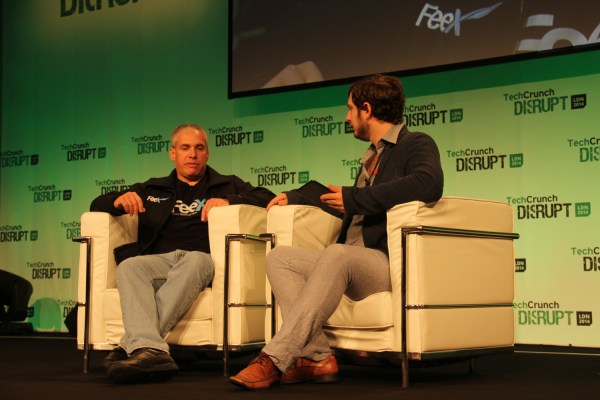This morning at the first day of Disrupt Europe in London, TechCrunch’s Josh Constine sat down with FeeX’s Uri Levine to dig into how the new company is doing. Levine is best known for his work with Waze, a mapping service that Google bought in a 10-figure deal.
FeeX has raised a total of $9.5 million to date, including a $6.5 million Series B round of funding this August. FeeX is built around the idea that common investors are paying too much in fees on their saved monies. Fees, over time, when implied-lost compound is taken into account, can cost the average person tens of thousands of dollars over the course of their life.
Discussing Waze, Levine said that he didn’t worry much about Google buying and screwing up the company. Levine indicated that he built the company “to be successful” on its own right, and not with a specific exit path in mind. Waze was, he went on to say, “on the mind of several” potential acquirers, at the time of the Google deal. So, the strategy of being somewhat blasé about a sale worked out well for the company.
“Fall in love with the problem, and not the solution,” Levine continued, because you want to understand why your users are suffering, even though the way you help them may need to change. His point is simple: If you are hyper-focused on the exact pain point that you are fixing, you don’t have to do much else — the rest will handle itself.
Regarding the leak parade that preceded the Waze-Google deal, Levine claimed that he did not leak any information to the press. Leaking, even when it seems that it might help, he said, often ends up doing the opposite. Constine cited the example of Google and Titan as a parallel and cautionary tale.
When the deal closed, Google and Waze had a “smooth” integration in Levine’s estimation. In fairness, however, he was gone by then, off to start FeeX. Of 107 people at Waze, 102 stayed on after the sale.
Waze’s growth has accelerated since it sold to Google, according to Levine.
Levine had no intention of staying with Waze. According to the FeeX executive, by the time that the Google deal closed, he was already working on his next project. One foot in, one foot out, in other words.
With FeeX, Levine compiled a ‘DNA’ document to define the company’s bone structure. He protects and builds that core through careful hiring: “You only bring on people that you want to work with,” the sort of people you want to spend quite a lot of time with, he explained.
All told, Levine has a strong pedigree with the Waze exit under his belt. If he can take the lessons that he learned and pull off another win, he’ll join an even rarer cadre of entrepreneurs.
[gallery ids="1072487,1072486,1072485,1072484,1072483"]
